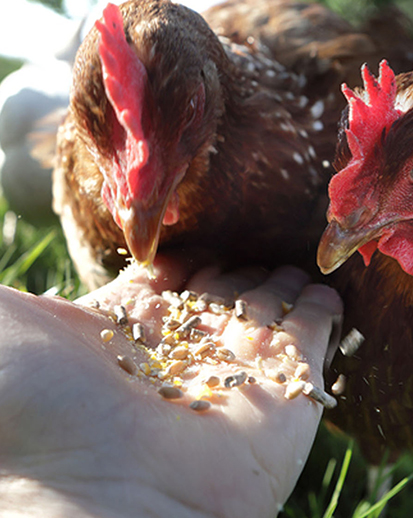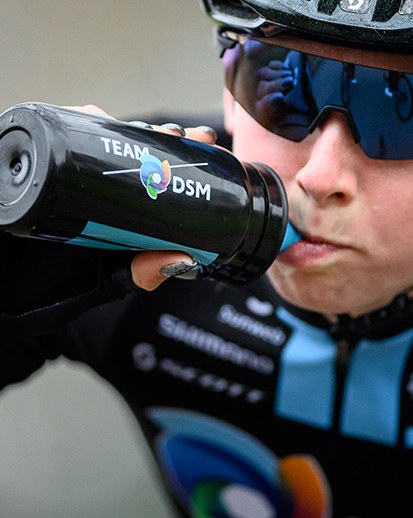Delivering on the six levers of our strategy
The 2020 pandemic brought a strong focus to two of the key pillars of the 2018 P&O strategy: Culture, and Inclusion and Diversity. However, throughout the year, we continued to deliver on all of the six strategic levers: Operating model, Customer-centricity, Internationalization & diversity, Leadership & development, Team by team and Culture / The DSM Ways of Working.
|
|
Aspiration |
|
2020 |
|
2019 |
||||
|
|
|
|
|
|
|
||||
Internationalization & diversity1 |
|
|
|
|
|
|
||||
Female executives |
|
25% by 2021 |
|
21% |
|
20% |
||||
Under-represented nationalities |
|
35% by 2021 |
|
30% |
|
31% |
||||
|
|
|
|
|
|
|
||||
Training |
|
|
|
|
|
|
||||
Training hours per employee |
|
|
|
6 |
|
8 |
||||
|
||||||||||
Welcoming our colleagues from recent acquisitions into DSM
In 2020, in line with our ambition to strengthen our growth in the health and nutrition markets, we worked on the integration of three new businesses, thereby welcoming more than 1,700 new employees. These businesses share our purpose-led approach, and our new colleagues will bring complementary expertise and important values. More information on these acquisitions can be found in Nutrition.
The three-phase approach with Royal CSK
Our acquisition of dairy solutions provider CSK in late 2019 saw around 160 colleagues join our workforce. We share a strong cultural affinity, which has helped the integration process progress smoothly. The integration process was split into three phases. First, the CSK organization was integrated into the DSM Food Specialties structure. The second phase involved connecting CSK’s sites to the DSM operations network. The final phase was completed with the harmonization of compensation and benefits. In 2021, we will focus on further onboarding our new colleagues and finalizing the remaining minor changes to organizational structures, allowing us to focus on seizing the commercial and sustainability opportunities ahead.
A smooth transition with Glycom
Glycom, a human milk oligosaccharides company, brought 143 new colleagues to DSM. Glycom’s well-established culture of responsibility, innovation and safety fits well with our values at DSM. During the course of the integration project, a new management team was established, and an Innovation and Business Development department was set up. Furthermore, the integration project allowed a number of business support teams including Legal, Finance, Operations, IT, P&O and IP to make a smooth transition to our organization. Any remaining or ongoing activities in 2021 will be overseen by the functions that are already fully integrated.
A shared commitment to onboard Erber Group
More than 1,400 employees in over 40 countries joined DSM as a result of our acquisition of Austrian-based Erber Group in late 2020. The acquisition comprised the specialty animal nutrition and health business, Biomin, and food and feed diagnostic solutions business, Romer Labs. We established an integration project team covering a range of businesses and functions. The team’s first focus was on implementing working teams, gaining a joint understanding on the businesses and functions, and establishing our ways of working and an initial 100-day plan. For 2021, the focus will be on establishing an Operations team, defining an integrated way of working for support functions as well as identifying the best approach for a joint go-to-market team.
Optimizing our Operating Model
As described by our value creation model, our operating model is composed of our market-facing business groups, which are grouped in clusters, as well as our global support and functional excellence departments, and our regional organizations. In 2020, in line with the turbulence of the markets we operate in, we developed and optimized our operating model, leveraging internal synergies and connecting digitally with customers. These organizational adjustments will help our teams and people work effectively and efficiently.
Demonstrating our Nutrition is Fit for Growth
In 2020, DSM Nutritional Products launched the Fit for Growth program. By simplifying our operating model and further improving business steering, the program aimed to further enhance our abilities to serve customers and respond to the needs of the respective end-markets. At the same time, it applied a differentiated go-to-market approach to better capture commercial opportunities and prepare us for continuously changing market dynamics.
Our Materials Cluster shows its Agility to Grow
Designed in late 2019, and launched in 2020, our Materials cluster’s Agility to Grow program has sought to drive efficiency, effectiveness and productivity by leveraging synergies across our business groups to deliver an organization that responds quickly and flexibly to evolving market conditions. The program focuses on seizing opportunities across three functional workstreams: Procurement, Operations and Innovation.
Evolving to serve our customers
Many of the wider developments in 2020 underlined that, in a fast-changing world, it is more important than ever to put customers first. Nevertheless, travel restrictions and social distancing measures relating to the pandemic meant that many of our conventional ways of connecting to customers were impossible. As such, our teams and people around the world adapted to the circumstances and connected to our customers in new, digital ways. Our overall Net Promotor Score of 50 for 2020 compared to 41 in 2019, shows that our customers appreciated our efforts to connect digitally and to listen to their needs.
Indeed, our service to customers was underpinned by our efforts to build and maintain resilient and agile teams. For much of 2020, many of our office-based teams around the world interacted digitally and operated remotely, while our operations and research teams mainly continued to work on site
Reinforcing Leadership and development, Team by team
In 2020, management styles were also adapted, with online team-building activities being encouraged and organized around the world. At the same time, we also moved many of our people development programs and initiatives online.
As part of our efforts to drive the effectiveness of our teams and better serve our customers, we launched Feedback Empowers. This global initiative aims to build feedback into our daily processes and make it part of our daily behavior, in order to accelerate change and growth across DSM, and drive the impact of our people. Feedback Empowers involves virtual classrooms, digital toolkits with useful tips, and other resources designed to improve employees’ feedback skills. Global champions drive the initiative and proactively engage with employees and managers.
Regular performance and development evaluations play an important role in ensuring we are performance-driven and develop our people for roles today and into the future. In 2020, almost 15,000 employees had access to the global digital evaluation tool for performance reviews. All other employees participated in performance evaluation on paper or by means of local systems.
Driving Internationalization and diversity
To serve our diverse markets and customers, our talent base must also be global and diverse. In 2020, we continued to focus on increasing the representation of women and under-represented nationalities, as well as on fostering an inclusive environment.
At the end of 2020, 21% of DSM’s executives are female. This is 1% higher than in 2019 but still lower than our target of 25%. In addition, 30% of our executives come from under-represented nationalities, which is below the level of 2019 and below our target of 35%. Moving forward, we will continue to work on improving the representation of women and under-represented nationalities within our executive population within the framework of our Inclusion & Diversity strategy. The diversity of our Executive Committee and Supervisory Board is described in the Corporate governance.
In 2020, Equileap ranked us second of 100 Dutch listed companies for gender equality. Our position was due to our Executive Board and Supervisory Board ratio (57% and 42% female respectively) exceeding Dutch legislative requirements of 30%, our strategy to close the gender pay gap, and our commitment to the United Nations Women’s Empowerment Principles.







